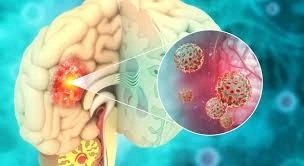
Types of Head and Neck Tumors and Early Warning Signs You Shouldn’t Ignore
Published on: 2025-06-14 | Written by: Professor Dr. Ahmed Shaaban, Endocrine and Tumor Surgery
Head and neck tumors represent a medical challenge that requires early detection and prompt intervention. These tumors vary in origin and location and can significantly impact quality of life if left undiagnosed. In this article, we explore the types of head and neck tumors, early warning signs, and modern treatment methods, under the expert supervision of Dr. Ahmed Shaaban.
First: What Are Head and Neck Tumors?
Head and neck tumors refer to a group of growths that occur in the:
-
Mouth
-
Nose and sinuses
-
Larynx (voice box)
-
Salivary glands
-
Pharynx (upper throat)
-
Thyroid gland
-
Lymph nodes in the neck
These tumors may be benign (non-cancerous) or malignant (cancerous), and treatment depends on the type, stage, and location of the tumor.
Common Types of Head and Neck Tumors:
1. Thyroid Tumors
-
More common in women
-
May be benign or malignant
-
Requires ultrasound imaging or fine-needle biopsy for diagnosis
2. Laryngeal Tumors
-
Often affect smokers or those exposed to irritants
-
Cause persistent hoarseness or breathing difficulties
3. Salivary Gland Tumors
-
Affect the parotid or submandibular glands
-
May be benign or require careful surgical removal
4. Oral and Pharyngeal Tumors
-
Appear as chronic, non-healing mouth ulcers or gum/tongue swelling
-
Strongly linked to tobacco and alcohol use
5. Nasal and Sinus Tumors
-
Symptoms often mimic common infections like nasal blockage or recurrent bleeding
-
Less common but require detailed evaluation
Early Symptoms You Shouldn’t Ignore:
It’s crucial to watch for the following signs and consult a doctor if any appear:
-
Difficulty swallowing or breathing
-
Persistent hoarseness
-
Lumps or swelling in the neck or jaw
-
Mouth ulcers that do not heal within two weeks
-
Unexplained nasal or oral bleeding
-
Chronic ear pain without cause
-
Unintended weight loss
Diagnosis and Treatment
According to Dr. Ahmed Shaaban, proper diagnosis involves:
-
Detailed clinical examination
-
CT scan or MRI
-
Endoscopic evaluation of the larynx or pharynx
-
Biopsy to determine tumor type
Treatment options include:
-
Precision surgery to remove the tumor while preserving healthy tissue
-
Radiation therapy with advanced targeting techniques
-
Chemotherapy, immunotherapy, or targeted therapy depending on the case
-
Minimally invasive endoscopy to reduce recovery time
Dr. Ahmed Shaaban’s Role in Treatment
Dr. Ahmed Shaaban is a recognized specialist in oncologic, gland, and head and neck surgery. His treatment strategy includes:
-
Advanced endoscopic diagnostics
-
Accurate tumor excision with cosmetic and functional preservation
-
Postoperative care and close patient follow-up

